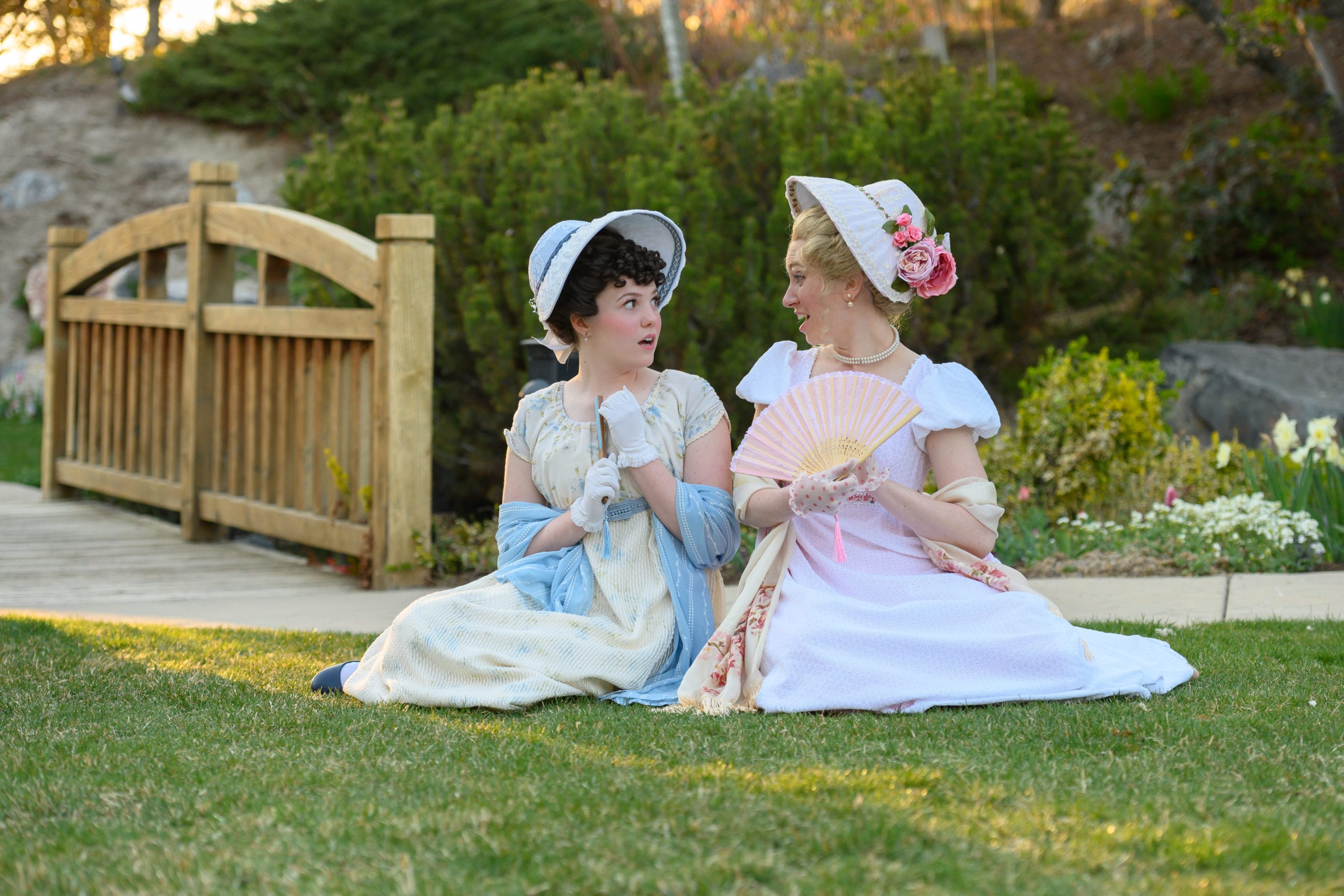OREM — Hale Center Theater Orem’s production of a musical adaptation of Jane Austen’s Emma (music, lyrics, and book by Tony Award nominee Paul Gordon) feels like the theatrical equivalent of high tea with good company. Think of a warm cup, a plate of delightful nibbles, a cozy gossip; comfort and ceremony combined into a pleasant treat for all. How refreshing to be out among friends again!

“It is a truth universally acknowledged” that Utah embraces Austen as one of our own. Her stories resonate with our local culture, especially amplified with music. Even if you have never touched the book, you are probably familiar with this plot: a pretty, petted young lady named Emma, with too much time on her hands and too little guidance from her elders, takes it into her head to play matchmaker for all her friends. Because her matchmaking skills are on par with her dubious talents at portrait painting and piano, she inevitably makes nothing but trouble with her well-intentioned meddling. The text may have been published in 1815, but a similar story is likely playing out now in any high school on the map.
This particular adaptation uses period dress and language but is no stiff “period piece.”
Director Rodger Sorensen keeps his cast in almost constant motion, a social swirl literally revolving around Emma. To help differentiate who is who in the maelstrom, each major character is introduced by being briefly lifted up and framed in a doorway. It took me a bit to realize that each was therefore cleverly placed among portraits of all the characters painted on the rear wall (set design and technical direction by Cole McClure). Occasionally, things move along a bit too quickly—Emma’s “Badly Done” moment is rushed and lacks impact—but overall the pacing is excellent.
There are difficulties in adapting novels to stage. One difficulty is in converting interior voice (character thoughts) to exterior expression, particularly if a character’s inner vision of things as they should be does not match reality. This production overcomes the problem by simply having Emma (capably portrayed by Kelly Cook) take the audience into her confidence, moving about and making eye-contact with individuals and sharing her thoughts. Swift lighting changes help to cue as well—rosy pink glow for Emma’s happy imagining, cool blue for what is actually happening (lighting design by Joseph Governale).

The rest of the cast has to be nimble in their portrayals to keep up with the quick switches of perspective. They are all equal to the challenge. Particularly, Tannah O’Banion pulls off three distinctive roles well. Her subtle caricature of the silent Mrs. Bates is so humorous that it doesn’t matter that O’Banion is far too young for the part; her depiction of the self-congratulatory Mrs. Elton (which could easily be overdone) is realistic. Dayne Joyner matches O’Banion’s portrayal well as the slightly repellant Mr. Elton. Amber Dodge is touchingly sincere as humble Miss Bates, Rachel Peterson as enigmatic Jane Fairfax stuns with her glorious singing voice, and Jim Dale and Whitney Larsen are solid as Mr. and Mrs. Weston. Mark Pulham is so endearing as Emma’s childlike father that is easy to see why Emma would be reluctant to leave her father on his own.
All important to an Austen story are the romantic leads. David Matthew Smith as Mr. Knightley and Skyler Denfeld as Frank Churchill are fine actors, with suitable good looks and voices. But their roles in this adaptation are confusing. Through most of the play Mr. Knightley is snide and grumpy, lacking the underlying warmth or kindness that should give Knightly the moral authority to check Emma in her excesses. Churchill, the deceiver who urges Emma on in her judgmental folly, is in this version more vanilla than villain. Harriet is right: the incoherent Mr. Robert Martin (Sean Hunter) is by far the most attractive suitor of the lot.
Besides Cook in the titular role, the standout of the ensemble is Alyssa Buckner as the loyal, gullible Harriet Smith. I appreciate that this particular adaptation gives Harriet a character arc, and Buckner portrays that growth so professionally that it is hard to believe Buckner is still in high school.
HCTO’s production of Emma is familiar and fresh and a good reason to get back out to the theater. Bring your smart phone (to scan the code for the program) and wear your mask. It’s high time for tea.
[box]Emma plays at Hale Center Theater Orem (225 West 400 North, Orem) through June 5, 2021, nightly at 7:30 PM with weekend matinees at 4 PM. Tickets are $22-$32. For more information, please visit their website.[/box]

